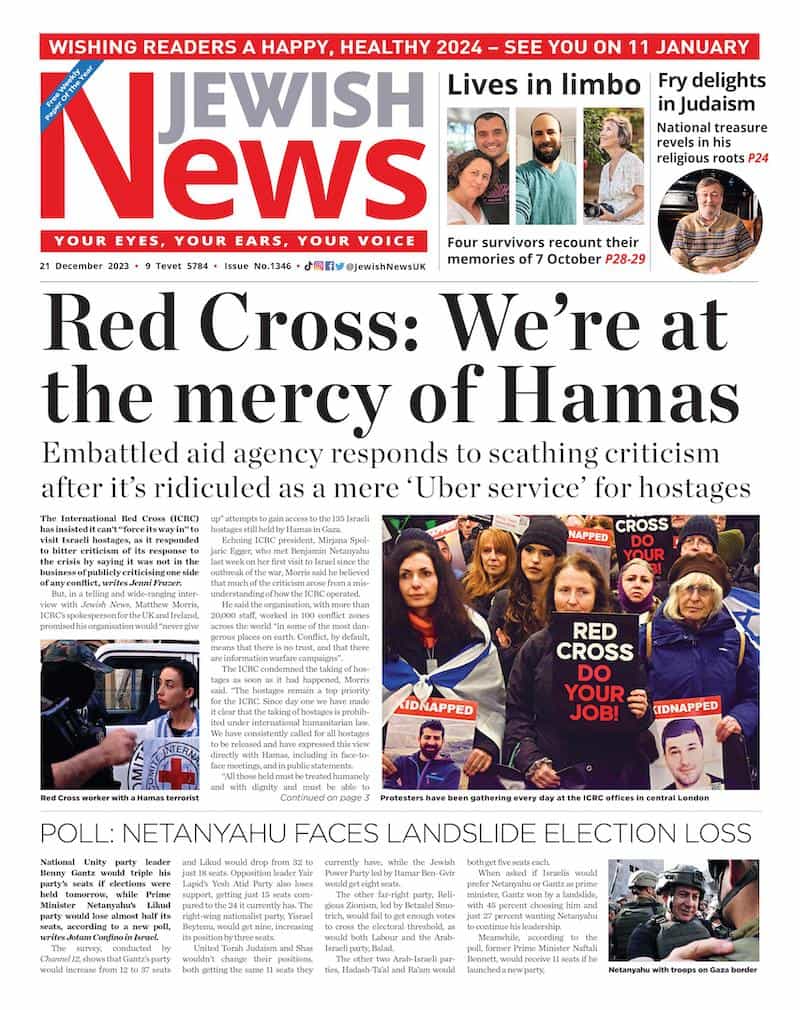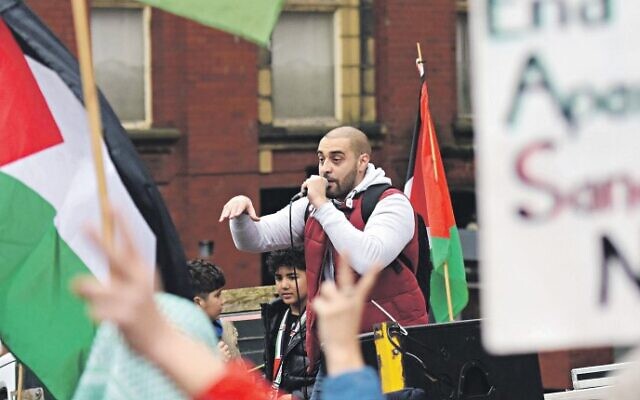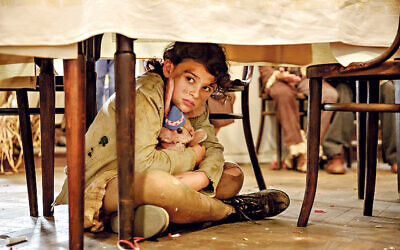EXCLUSIVE: NUS leaders quietly drop commitment to IHRA definition of antisemitism
Jewish News investigation into the NUS, under the leadership of outgoing president Larissa Kennedy, has discovered leaders placed anti-Israel rapper and conspiracy theorist Lowkey at the heart of a major campaign and even questioned the very idea of Jewish identity.
Lee Harpin is the Jewish News's political editor
National Union of Students (NUS) leaders have quietly dropped a commitment to the International Holocaust Remembrance Alliance’s (IHRA) definition of antisemitism, placed anti-Israel rapper and conspiracy theorist Lowkey at the heart of a major campaign and even questioned the very idea of Jewish identity.
A Jewish News investigation into the NUS, under the leadership of outgoing president Larissa Kennedy, has discovered she openly backed a move by a top university’s student union to “revoke its adoption of the IHRA definition of antisemitism” last November.
Jewish News was alerted to the apparent change in stance by the NUS – which represents around 600 students’ unions nationwide – in regard to the IHRA definition by an expert in student union affairs, who has worked within the higher education sector for nearly a decade.
The source, who is Jewish and asked not to be named, said:
“I strongly suspect NUS has abandoned the IHRA definition without telling anyone and is hoping nobody notices.
“If you search the NUS website, almost every reference to it has disappeared except one or two from the first half of 2020. It’s not in the National or Liberation Conference policy documents, it doesn’t seem to be a requirement to sign up to for election any more and isn’t discussed anywhere.”
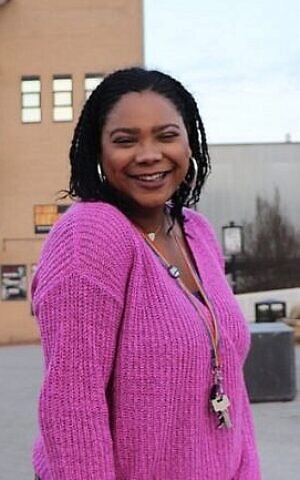
The NUS president had, it can be revealed, signaled her own opposition to the IHRA definition on 23 November last year on social media.
That same day, a student activist tweeted it was “sick” (good) that Queen Mary University of London had managed to pass a motion calling on both the student union and the university to “revoke their adoption of the IHRA definition of antisemitism.”
The successful motion added it “calls on both bodies to adopt the Jerusalem Declaration instead, which would provide a safer environment for BDS [boycott, divestment and sanctions movement] activism on campus”.
Among 16 individuals to “like” the activist’s tweet was the NUS president herself.
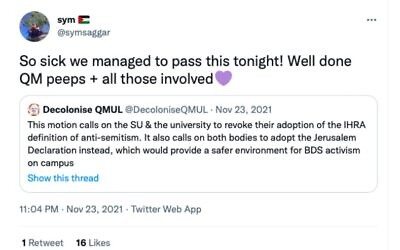
In January 2020, seven months before Kennedy became president, NUS responded positively to a government announcement of an extra £500,000 to help tackle antisemitism on campus.
A statement at the time said: “NUS is in full support of all efforts to tackle antisemitism and has adopted the IHRA definition of antisemitism.
“It has… teamed up with the Union of Jewish Students to create an online hub of resources in order to educate and support students’ unions in their activities of commemoration. This hub will be maintained … into the future.”
An ally of Kennedy’s at the NUS helm has been Sara Khan, who was promoted to the new vice-president liberation and equality role.
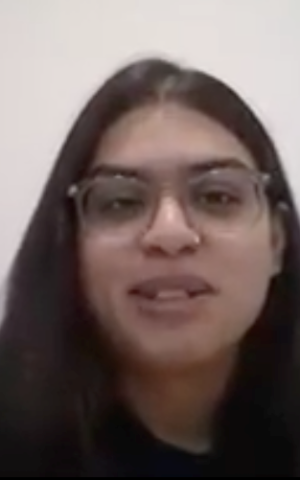
In tweets posted last May and seen by Jewish News, Khan appears to question the very idea of Jewish identity.
She wrote: “Is it kind of… antisemitic to homogenise all Jews into an ‘ethnoreligion’? like, both erasing Palestinian Jews, & letting white supremacist/settler Jews off the hook?”
In a further post, she said she “did some learning” and concluded “Judaism as an ethnoreligion refers to the shared heritage of all Jews as identity is passed down through maternal lineage but this is not the same as being a single ethnic group.”
She then surmised: “Imagine thinking the billions of Muslims whether South Asian or Arabic or Eastern European were the same ethnic group. I can’t.”
Khan has also carefully avoided spelling the word “Israel” in numerous tweets, instead choosing to write “Isra*l”.
Watching last year’s Eurovision Song Contest show the NUS vice president appeared unable to again hide her loathing of Israel.
She tweeted “wish we could have the energy of giving 0 points to Isra*l the way we have the energy of giving 0 points to UK but ok ..”
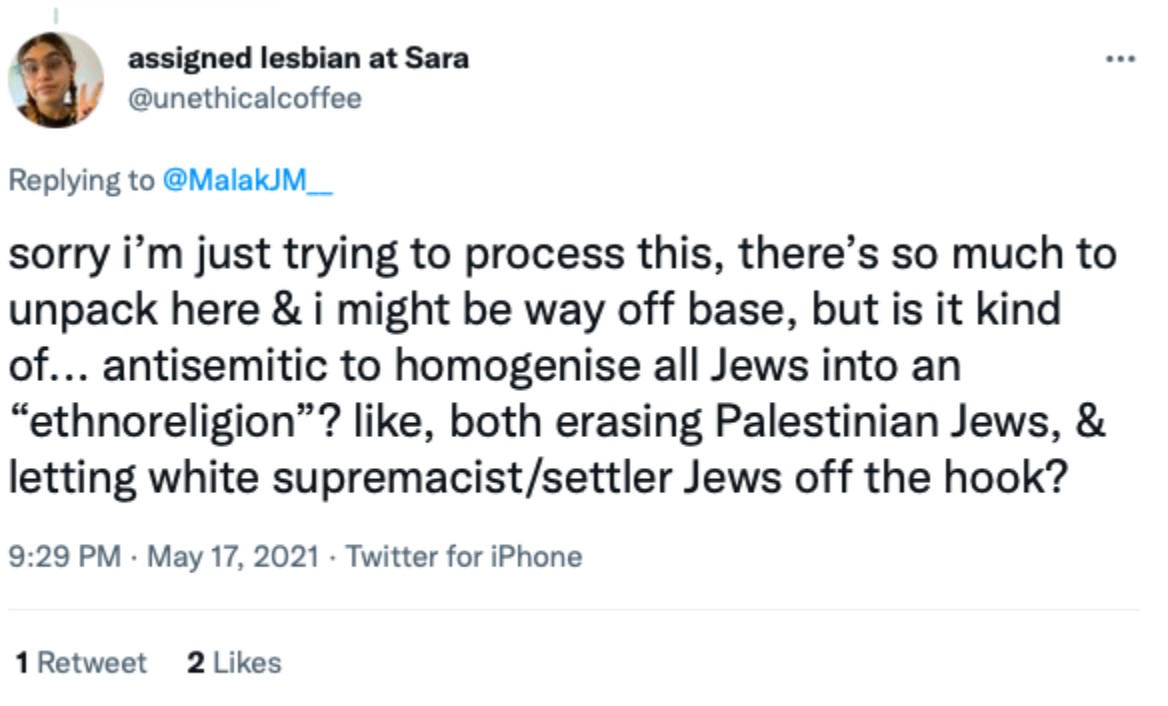
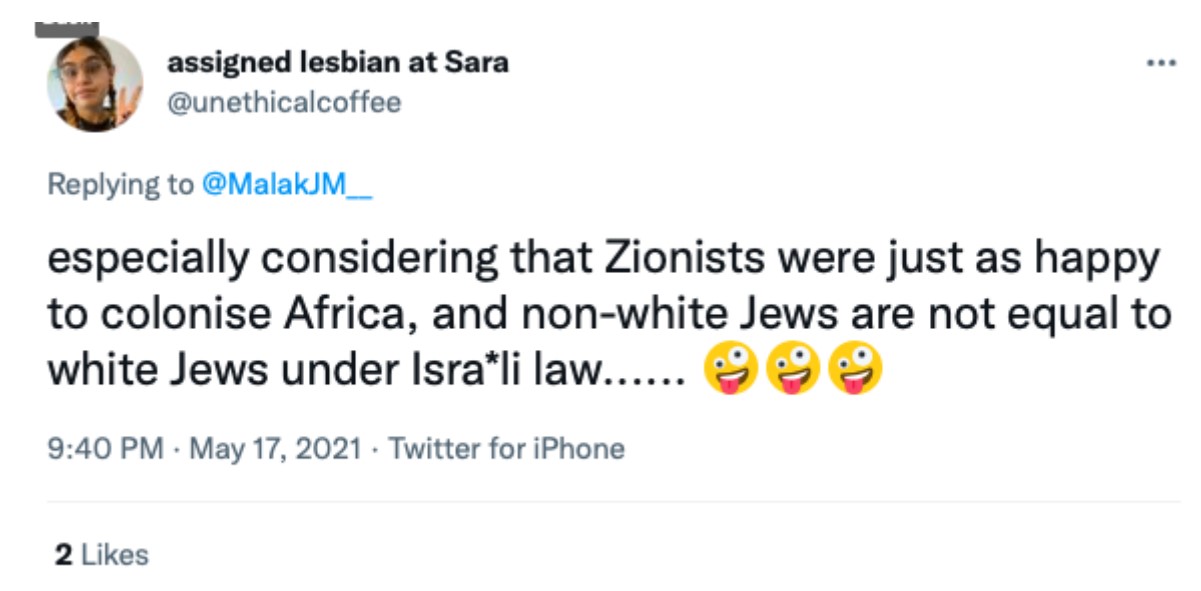 Further evidence shown to Jewish News also confirmed both Kennedy and Khan had played a leading role in “facilitating” a launch event on 16 May last year for the NUS Decolonialise Education campaign in which rapper and conspiracy theorist Lowkey gave the keynote speech.
Further evidence shown to Jewish News also confirmed both Kennedy and Khan had played a leading role in “facilitating” a launch event on 16 May last year for the NUS Decolonialise Education campaign in which rapper and conspiracy theorist Lowkey gave the keynote speech.
The official NUS social media account praised the pair for “facilitating a brilliant weekend”, adding that Lowkey had “really set the tone for this incredible festival”, which took place online.
NUS leaders were criticised last week over the decision to invite Lowkey, a conspiracy theorist, to perform at an NUS centenary event.
Amid protests from UJS and the Board of Deputies it was confirmed last Friday that he had pulled out.
But it is understood Kennedy was among those defending the decision to invite Lowkey – who recently suggested the mainstream media had “weaponised the Jewish heritage of the president of Ukraine to try to stave off genuine inquiries into the groups fighting in Ukraine” – allegedly telling student representatives she was “more concerned about who she might hurt if the event was cancelled”.
Boris Johnson, meanwhile, has warned UK universities have “for far too long been tolerant of casual or indeed systematic antisemitism”.
Responding to a question from Andrew Percy – who co-chairs the All Party Parliamentary Group Against Antisemitism – the prime minister added: “I hope everybody understands the need for rapid, and indeed irreversible change.”
He said it was important the UK had an antisemitism task force “devoted to rooting out” the problem “in education at all levels”.
Decolonise Education is aimed at forcing every UK university to look into issues such as funding from countries with poor rights records.
Khan has tweeted that “you do not support ‘decolonising education’ if you’re invested financially and ideologically” in what she said was Israel’s “apartheid, settler colonialism and genocide”.
She concluded: “Decolonisation is not a metaphor; it’s indigenous sovereignty, and you aren’t ‘decolonising’ if you don’t support BDS and Palestinians.”
Jewish News has been shown examples of how it singles out Israel and the BDS movement as an example of positive decolonising campaigning.
Its resource hub for the campaign is awash with anti-Zionist literature, videos and recommendation for further reading including an interview with anti-Israel activist Huda Ammori on the Apartheid Off Campus podcast.
An introductory video for the Decolonising Education campaign understandably highlights the Black liberation struggle – but the speaker then goes on to use the examples of South Africa, Australia and then Palestine as framing.
Another resource in the Decolonisers’ Library is the infamous New York Times article from 2011 which attempted to dismiss the achievements of the Israeli LGBT+ rights movement as “Pinkwashing”.
Actively promoting the campaign and the resource library the NUS also recruited dozens of trained activists last summer to take the campaign to campuses across the country this year.
There is an offer of £200 in funding for all new student groups taking up the Decolonise Education mantra.
Groups that have so attached themselves to the project include Decolonise University of Manchester.
Last July the group led calls for Manchester University to break its ties with Tel Aviv University which it claimed, “is in violation of its commitment to oppose racist violence and oppression.”
That same month the University of East Anglia’s Decolonise group said they had “met with the Vice-Chancellor to push for divestment from Israeli violence in Palestine.”
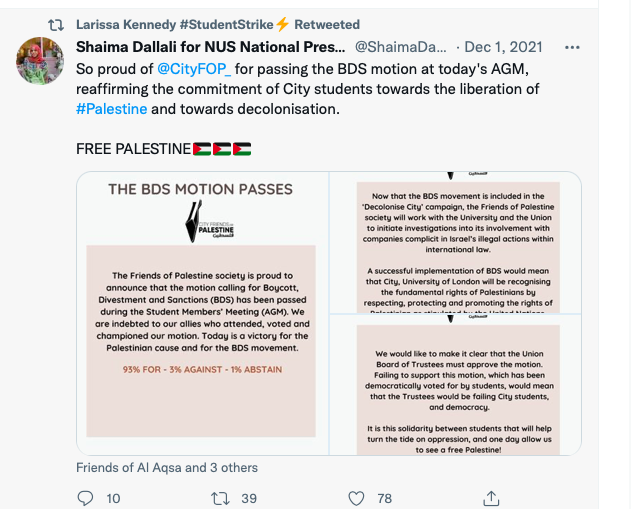
Both the NUS and Khan said they would not be commenting on the vice-president’s social media posts questioning Jewish ethnic identity, or her refusal to write the word Israel.
The higher education expert who alerted Jewish News to both the NUS president and vice-president’s conduct said: “It is horrifying and alarming to see how this NUS leadership has encouraged a hostile environment against Jewish students.
“In a year when CST found Jewish students faced unprecedented levels of hostility on our campuses, the union was indulging rising toxicity rather than challenging it. It has been deeply distressing and exhausting to watch this unfold as a Jewish professional in HE.
“NUS should be ashamed that there is even any question about its commitment to Jewish students in the year of its 100th anniversary.”
Jewish News approached the NUS, Kennedy and Khan for comment over the allegations – and asked them to confirm they were committed to the adoption of the IHRA definition.
An NUS spokesperson responded on Tuesday: “Thanks for emailing. We won’t be commenting on this.”
The government’s independent antisemitism adviser, Lord John Mann, said he was “shocked and appalled” by the conduct of the NUS leadership and their failure to commit to IHRA.
Mann said he would urgently look into the matter. Jewish News has sent him its dossier of evidence

Thank you for helping to make Jewish News the leading source of news and opinion for the UK Jewish community. Today we're asking for your invaluable help to continue putting our community first in everything we do.
For as little as £5 a month you can help sustain the vital work we do in celebrating and standing up for Jewish life in Britain.
Jewish News holds our community together and keeps us connected. Like a synagogue, it’s where people turn to feel part of something bigger. It also proudly shows the rest of Britain the vibrancy and rich culture of modern Jewish life.
You can make a quick and easy one-off or monthly contribution of £5, £10, £20 or any other sum you’re comfortable with.
100% of your donation will help us continue celebrating our community, in all its dynamic diversity...
Engaging
Being a community platform means so much more than producing a newspaper and website. One of our proudest roles is media partnering with our invaluable charities to amplify the outstanding work they do to help us all.
Celebrating
There’s no shortage of oys in the world but Jewish News takes every opportunity to celebrate the joys too, through projects like Night of Heroes, 40 Under 40 and other compelling countdowns that make the community kvell with pride.
Pioneering
In the first collaboration between media outlets from different faiths, Jewish News worked with British Muslim TV and Church Times to produce a list of young activists leading the way on interfaith understanding.
Campaigning
Royal Mail issued a stamp honouring Holocaust hero Sir Nicholas Winton after a Jewish News campaign attracted more than 100,000 backers. Jewish Newsalso produces special editions of the paper highlighting pressing issues including mental health and Holocaust remembrance.
Easy access
In an age when news is readily accessible, Jewish News provides high-quality content free online and offline, removing any financial barriers to connecting people.
Voice of our community to wider society
The Jewish News team regularly appears on TV, radio and on the pages of the national press to comment on stories about the Jewish community. Easy access to the paper on the streets of London also means Jewish News provides an invaluable window into the community for the country at large.
We hope you agree all this is worth preserving.

